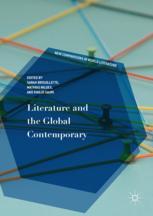

Most ebook files are in PDF format, so you can easily read them using various software such as Foxit Reader or directly on the Google Chrome browser.
Some ebook files are released by publishers in other formats such as .awz, .mobi, .epub, .fb2, etc. You may need to install specific software to read these formats on mobile/PC, such as Calibre.
Please read the tutorial at this link: https://ebookbell.com/faq
We offer FREE conversion to the popular formats you request; however, this may take some time. Therefore, right after payment, please email us, and we will try to provide the service as quickly as possible.
For some exceptional file formats or broken links (if any), please refrain from opening any disputes. Instead, email us first, and we will try to assist within a maximum of 6 hours.
EbookBell Team

0.0
0 reviewsThis book attempts to understand what ‘contemporary’ has meant, and should mean, for literary studies. The essays in this volume suggest that an attentive reading of recent global literatures challenges the idea that our contemporary moment is best characterized as a timeless, instantaneous ‘now’. The contributors to this book argue that global literatures help us to conceive of the contemporary as an always plural, heterogeneous, and contested temporality. Far from suggesting that we replace theories of an omnipresent ‘end of history’ with a traditional, single, diachronic timeline, this book encourages the development of such a timeline’s rigorous inverse: a synchronic, multi-faceted and multi-temporal history of the contemporary in literature, and thus of contemporary global literatures. It opens up the concept of the contemporary for comparative study by unlocking its temporal, logical, political, and ultimately aesthetic and literary complexity.